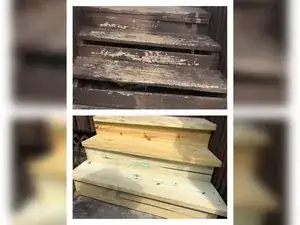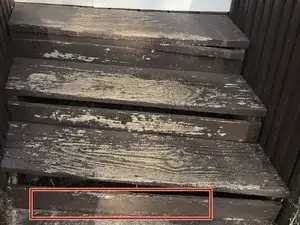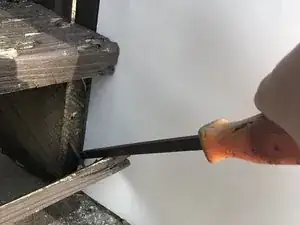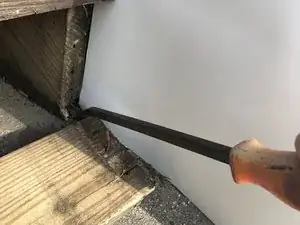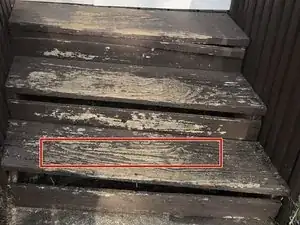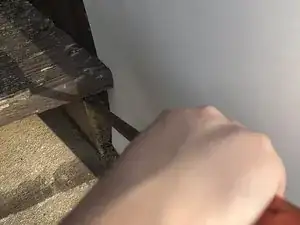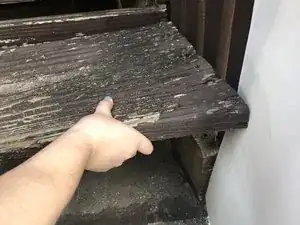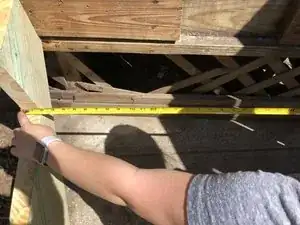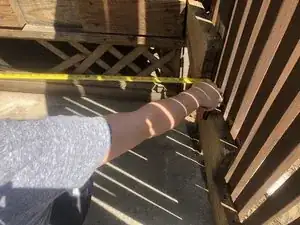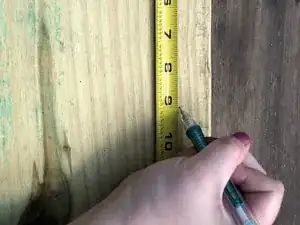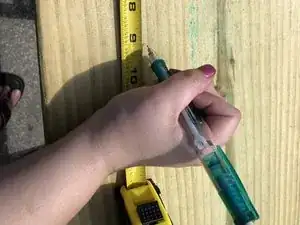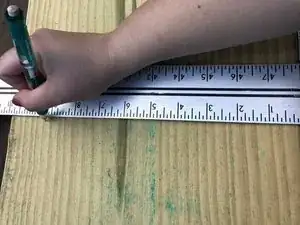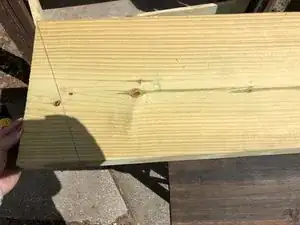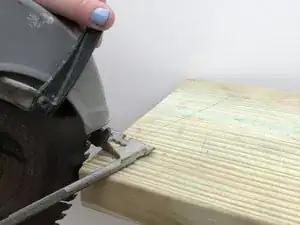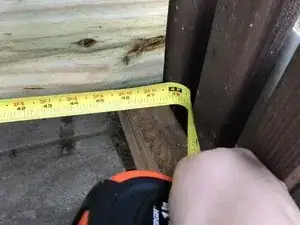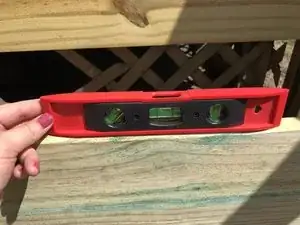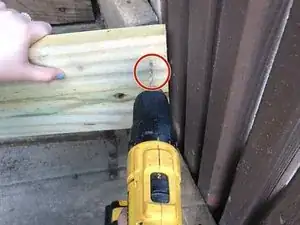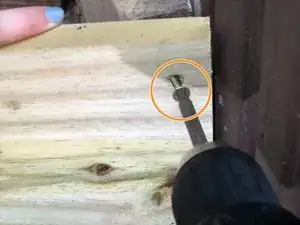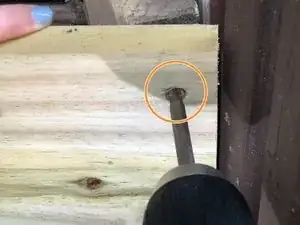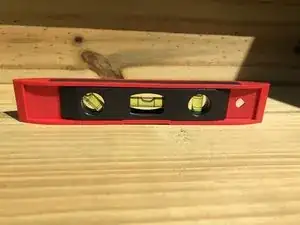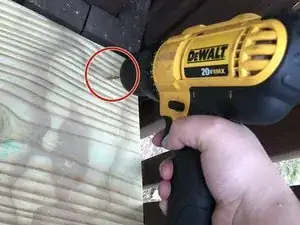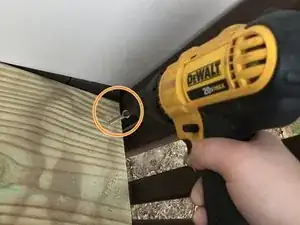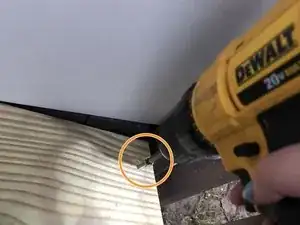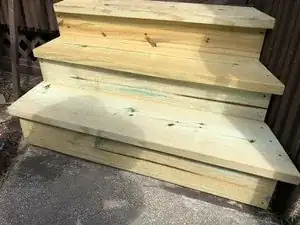Introduction
This guide will walk you through removing old or deteriorated treads and risers from a set of stairs. It will also teach you how to bring your stairs back to life by replacing them with new weather treated wood pieces. There are only 11 required steps to this guide which makes it not only cost effective but also time efficient. This fix will allow you to be a part of a community that fixes things instead of contributing to our throwaway economy and causing havoc on our environment. It is important to focus on safety throughout this fix because there will be power tools and manual labor involved.
Tools
-
-
Use a pry bar to remove the pre-existing damaged wood pieces.
-
Remove the treads on the stairs.
-
-
-
Mark your measurements on both ends of your new weather treated wood using a measuring tape and a pencil.
-
-
-
Place the new piece of wood (riser) on the steps to ensure that it fits.
-
Use a leveler to make sure that it is level.
-
-
-
Secure your wood piece (riser) into place using a drill and galvanized screws.
-
Create two pilot holes with the correct drill bit.
-
Secure the wood (riser) into place by drilling 2" galvanized Phillips head screws into the pilot holes.
-
-
-
Secure your wood piece (tread) into place using a drill and galvanized screws.
-
Create three pilot holes with the correct drill bit.
-
Secure the wood (tread) into place by drilling 2" galvanized Phillips head screws into the pilot holes.
-
To reassemble your old stairs, follow these instructions in reverse order.
